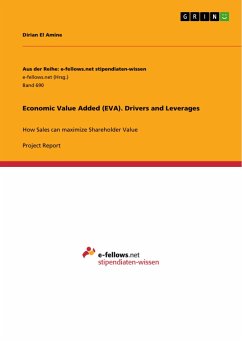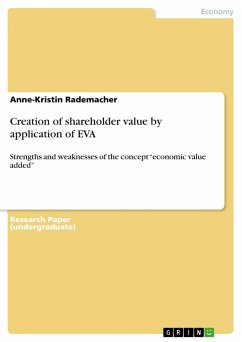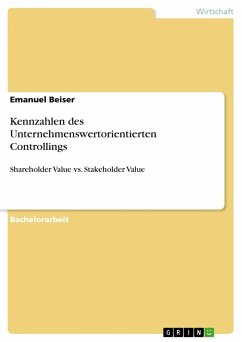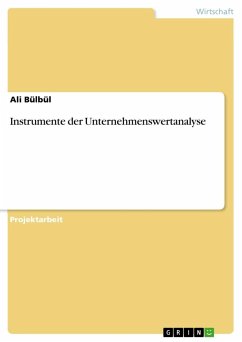Project Report from the year 2011 in the subject Business economics - Business Management, Corporate Governance, grade: 1,5, University of Cooperative Education Stuttgart; Horb, language: English, abstract: From the contemporary dominance of the shareholder value approach arises more and more the necessity to precisely detect its performance as shareholder value is broadly seen as a significant indicator determining a company's success or failure. However, measuring the performance of a company's shareholder value can be very challenging. Hence, the purpose of this paper is to deal with a well-known approach that enables businesses to detect its shareholder value performance: Economic Value Added (EVA). The thesis discusses the correlation between EVA and shareholder value, it further outlines its main drivers. In the second part, the paper elaborates on the specific links of the EVA approach to a regional Sales department and identifies the department's main leverages on EVA. Inorder to detect the influence of the main operative decisions on EVA, the thesis introduces the key figure Effect-on-EVA. The applicability of Effect-on-EVA is shown in a model calculation. Above all, this project thesis shall create a profound practical value by sharpening the awareness of how to influence EVA in a positive way. In order to meet the recommended scope, the paper does not elaborate Asset Management, Accounts Receivable Management and Incentive Compensation in detail, but strives to point out the respective links to EVA.
Hinweis: Dieser Artikel kann nur an eine deutsche Lieferadresse ausgeliefert werden.
Hinweis: Dieser Artikel kann nur an eine deutsche Lieferadresse ausgeliefert werden.








